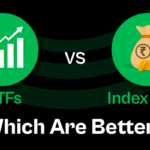The narrative around Gen Z is changing. Often painted with a broad brush of being obsessed with short-term trends and “hustle culture,” a deeper look reveals a generation that is surprisingly grounded, pragmatic, and purpose-driven when it comes to money. Far from being a fleeting fad, their approach to finance is a seismic shift that is redefining what it means to be an investor. Gen Z is not just participating in the market; they are actively shaping it, and their influence will be felt for decades to come
A Generation Forged in Uncertainty
To understand Gen Z’s financial mindset, you have to understand the world they grew up in. They came of age during a period of unprecedented economic turmoil: the lingering effects of the 2008 financial crisis, soaring student loan debt, volatile job markets, and a global pandemic that upended life as we knew it. This backdrop has instilled in them a deep-seated desire for financial security and a healthy skepticism of traditional institutions and get-rich-quick schemes.
Instead of being reckless, many Gen Z investors are exhibiting a remarkable level of caution. Studies show a significant portion of this generation is prioritizing emergency funds and long-term financial stability over high-risk gambles. In some regions, a large percentage of Gen Z is saving at least 30% of their income every month, a figure that demonstrates a serious commitment to financial discipline. They are more likely to park their savings in traditional, low-risk instruments like fixed deposits and savings accounts, challenging the stereotype that all young investors are rushing into crypto and meme stocks. For them, financial success is less about extravagant wealth and more about stability, flexibility, and peace of mind.
The Digital Playground: Accessibility and Its Perils
The digital-native status of Gen Z is perhaps the most defining characteristic of their investment journey. They are bypassing the traditional routes of financial advice and information and instead congregating on platforms they are already familiar with. Social media has become their financial academy, with “finfluencers” on YouTube, TikTok, and Instagram providing bite-sized lessons on everything from budgeting and saving to investing in stocks and crypto.
This digital-first approach has its advantages. It democratizes financial knowledge, making it accessible to a wider audience and at an earlier age. The gamification of investing through apps that offer leaderboards, rewards, and “streaks” has made personal finance feel less like a chore and more like a game. The rise of fintech has also lowered the barrier to entry with commission-free trading and fractional shares, allowing them to invest in high-value companies with minimal capital.
However, this reliance on social media also presents a significant challenge. The line between credible, well-researched financial advice and unverified, potentially harmful information is often blurred. The fear of missing out (FOMO) can lead to impulsive decisions based on a hyped-up stock or crypto, without a full understanding of the underlying risks. This has led to concerns from regulators and financial experts about the need for a more structured and ethical approach to financial education.
Beyond the Numbers: Investing with Purpose
Gen Z is not just looking for a return on investment (ROI); they are demanding a return on their values. This generation is deeply concerned with social and environmental issues, and they are using their investment power to make a statement. There is a growing preference for socially responsible investing (SRI) and ESG (Environmental, Social, and Governance) funds. They want to know that the companies they invest in are not only profitable but also align with their beliefs on climate change, labor practices, and diversity.
This values-driven approach extends to their financial habits as a whole. They are more likely to support businesses that demonstrate a commitment to social causes and are willing to pay a premium for ethical and sustainable products. For financial institutions, this means that success with Gen Z is not just about offering the best returns, but also about building a brand that is transparent, authentic, and genuinely committed to making a positive impact on the world.
The Road Ahead: Challenges and Opportunities
While the future looks bright for Gen Z as a generation of investors, there are still significant hurdles to overcome. The economic pressures they face are immense, from high living costs and student loan debt to a job market that demands constant upskilling. Their financial stress and insecurity about the future are very real, and for many, side hustles are not just a choice but a necessity to make ends meet and build a stable financial foundation.
For the financial industry, the opportunity is clear:
Elevate Financial Literacy: Move beyond basic guides and offer comprehensive, gamified, and interactive educational content. This means creating tools that help them understand complex concepts like risk management, asset allocation, and the long-term power of compounding, all while using a language and format that resonates with them.
Embrace Embedded Finance: Gen Z expects seamless, integrated financial services. They don’t want to log into multiple apps. Financial institutions can win by embedding financial tools directly into the platforms they already use for work, shopping, and entertainment. This creates a frictionless and convenient user experience.
Build Trust and Authenticity: Gen Z values transparency and trust. Institutions need to be upfront about fees, risks, and the underlying purpose of their investments. Partnering with credible financial experts and “finfluencers” and providing a platform for genuine peer-to-peer learning can help build a loyal community.
Personalize the Experience: Gen Z expects personalization. AI-driven financial guidance, tailored investment recommendations based on their values and risk tolerance, and real-time insights can make them feel seen and understood.
In conclusion, Gen Z is on track to become the most financially savvy generation of investors yet. They are not just inheriting the financial system; they are actively working to reshape it. With their digital fluency, cautious optimism, and a strong sense of purpose, they have the potential to build a more equitable, transparent, and values-aligned financial future for all. The question is not if they will become the next generation of investors, but how the financial world will adapt to meet them where they are.







